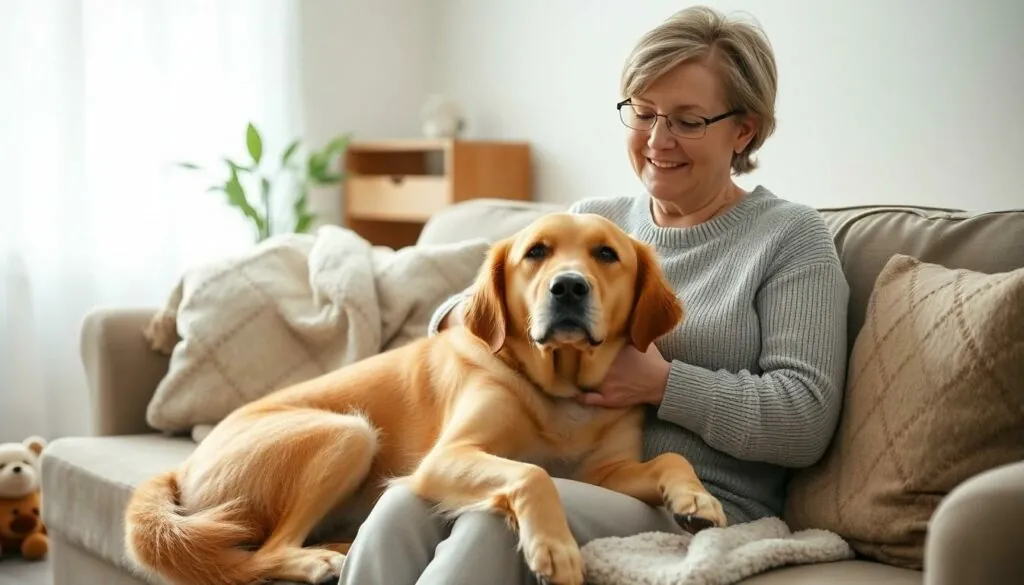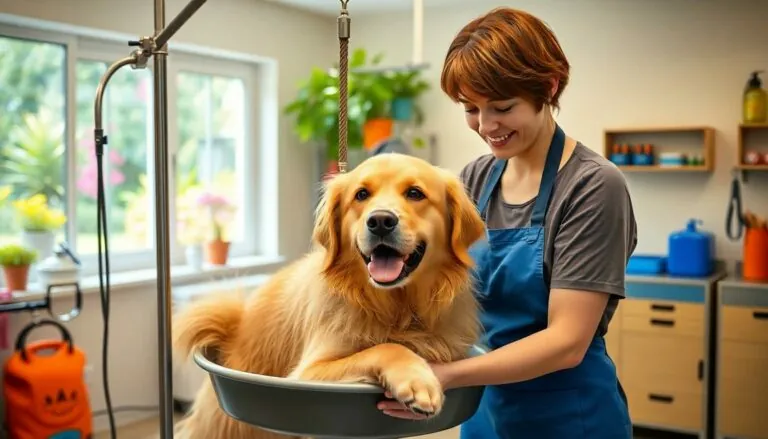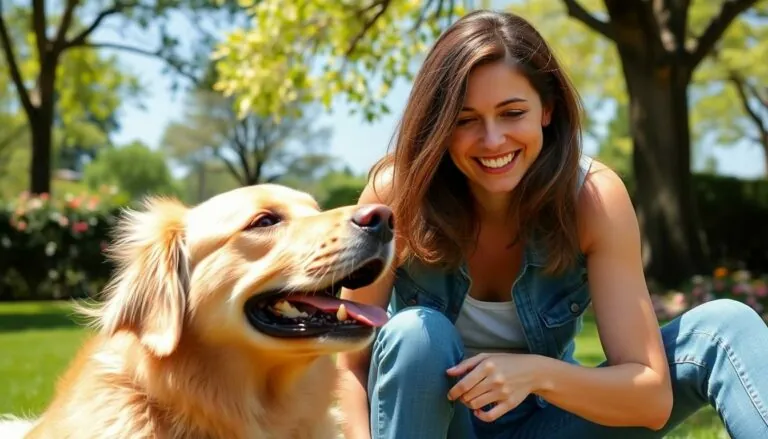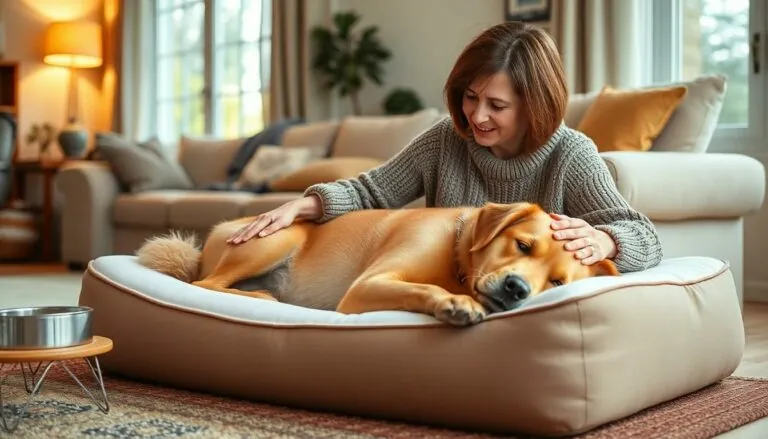Table of Contents
ToggleAs pets age, they often become the wise old sages of the household, complete with a few extra gray hairs and a penchant for napping in the sun. Caring for senior pets isn’t just about keeping their bowls full; it’s about understanding their unique needs and giving them the royal treatment they deserve. After all, who wouldn’t want to pamper their furry friend like a four-legged king or queen?
Understanding Senior Pet Care
Caring for senior pets involves recognizing their specific needs as they grow older. These animals require a nurturing environment that values their wisdom while addressing age-related changes.
What Defines Senior Pets?
Senior pets typically range from seven years old for small breeds to five years old for larger breeds. Aging affects physical appearance, behavior, and health conditions. Signs such as decreased energy, changes in appetite, and mobility issues indicate aging. Pet owners should prioritize understanding these signs, as timely recognition leads to better care. Not all pets age at the same rate, making individual assessments essential.
Common Health Issues in Senior Pets
Senior pets often experience common health issues, including arthritis, dental disease, and obesity. Arthritis impacts mobility, making movement painful and challenging. Dental disease can lead to severe health complications, yet regular dental care often prevents it. Obesity exacerbates existing health conditions and can shorten a pet’s lifespan. Frequent veterinary check-ups help identify these issues early, allowing for effective management. Active monitoring of weight and daily exercise supports overall well-being, fostering a healthier life for senior pets.
Nutritional Needs of Senior Pets

Senior pets require specific nutritional adjustments to thrive. These changes support their aging bodies and maintain overall health.
Importance of a Balanced Diet
Balanced diets play a crucial role in the well-being of older pets. Senior pets benefit from lower calories to prevent obesity. They also need higher fiber to aid digestion and maintain healthy weight. Protein intake should remain sufficient to support muscle maintenance and repair. Essential fatty acids enhance skin and coat health. Formulas designed for seniors often contain antioxidants, promoting better immune function. Monitoring food labels helps ensure the right nutrients are included. Regularly updating diets based on veterinarian recommendations can further enhance senior pets’ quality of life.
Supplements for Senior Pets
Supplements can significantly improve health in senior pets. Glucosamine and chondroitin support joint health, helping manage arthritis symptoms. Omega-3 fatty acids reduce inflammation and promote brain health. Probiotics aid digestive function, particularly in pets with sensitive stomachs. Antioxidant supplements may enhance cognitive functions in aging pets. Each supplement should align with specific health needs, so consulting a veterinarian is essential. Ensuring that supplements complement a balanced diet maximizes benefits. Administering these additional nutrients thoughtfully can lead to a noticeable improvement in mobility and overall vitality.
Exercise and Mental Stimulation
Maintaining physical health and mental sharpness in senior pets requires tailored exercise and engaging activities. Customized routines ensure pets remain active while accommodating their changing bodies.
Tailoring Exercise for Older Pets
Exercise routines must suit senior pets’ abilities. Shorter, gentler walks work best for pets with joint issues or reduced stamina. Owners should observe their pets during activity, stopping if signs of fatigue appear. Low-impact exercises, like swimming or gentle fetch, provide significant benefits while minimizing strain. Frequency matters, so distributing exercise throughout the week promotes health and prevents boredom. Vets often recommend adjusting intensity levels and durations based on individual health conditions, ensuring activities remain enjoyable for senior pets.
Engaging Activities for Senior Pets
Engaging activities stimulate both body and mind, enhancing a senior pet’s overall well-being. Puzzle toys encourage problem-solving and provide mental challenges, keeping pets sharp. Interactive games promote bonding and physical activity, catering to various skill levels. Enrichment activities, such as scent work or short agility courses, can boost confidence and provide excitement. Minimizing stress through calm environments while introducing new activities helps create positive experiences. Regularly rotating toys and activities prevents monotony, encouraging curiosity and maintaining enthusiasm in senior pets.
Regular Veterinary Care
Regular veterinary care plays a critical role in the health and well-being of senior pets. Routine check-ups help identify medical issues early while offering insights into ongoing health needs.
Importance of Routine Check-ups
Routine check-ups provide valuable opportunities for monitoring a senior pet’s health. Vets perform assessments of vital signs, weight, and overall condition during these visits. Early detection of conditions—such as arthritis, dental disease, or heart issues—enhances management and treatment options. Recommendations often include blood tests and urinalysis to evaluate organ function. Scheduling check-ups every six months instead of annually supports timely interventions, ensuring senior pets receive appropriate care as they age.
Vaccinations and Preventative Care
Vaccinations remain important for senior pets, although their needs may shift from those of younger animals. Regular vaccination schedules help protect against diseases such as rabies, distemper, and parvovirus. Preventative care should also include parasite control, like flea and tick prevention or heartworm testing. Discussing vaccination adjustments with a veterinarian ensures a tailored approach that accounts for a senior pet’s age and health status. Preventative measures can have a significant impact on quality of life, allowing older pets to stay healthy and active.
Adapting the Home Environment
Creating a suitable home environment for senior pets can significantly enhance their quality of life. It’s essential to address safety and comfort to ensure they thrive.
Safety Measures for Senior Pets
Safety measures are crucial for senior pets as they navigate their surroundings. Installing non-slip mats can prevent slips and falls on smooth surfaces. Keeping hazardous items out of reach also minimizes risks associated with accidents. Using baby gates helps restrict access to stairs, reducing the chance of injury. Regularly checking for sharp objects or toxic plants creates a safer environment. Ensuring proper lighting in all areas aids senior pets in moving around more confidently. Avoiding clutter keeps pathways clear, facilitating easier navigation for them. Each of these adjustments plays a vital role in maintaining a secure space for aging animals.
Comfortable Living Spaces
Comfortable living spaces contribute to the overall well-being of senior pets. Providing orthopedic bedding supports their joints and enhances sleep quality. Designating quiet areas allows them to retreat when they feel tired or overwhelmed. Using ramps instead of stairs helps pets access favorite resting spots without straining themselves. Maintaining a consistent temperature in the home ensures their comfort, particularly during extreme weather. Offering soft toys or blankets can provide them with additional comfort. Regularly cleaning their environment decreases allergens, promoting better health. Each aspect plays a part in ensuring senior pets feel relaxed and cared for at home.
Caring for senior pets requires a thoughtful approach that prioritizes their unique needs. By recognizing the changes that come with aging and adapting care routines accordingly, pet owners can significantly enhance their furry companions’ quality of life. From tailored nutrition and exercise to regular veterinary check-ups, every aspect of care plays a crucial role in promoting health and happiness.
Creating a safe and comfortable environment is equally important in ensuring senior pets feel secure and loved. With the right attention and adjustments, these cherished animals can enjoy their golden years to the fullest, continuing to bring joy and companionship to their families. By treating senior pets like royalty, owners can honor their wisdom and the special bond they share.






